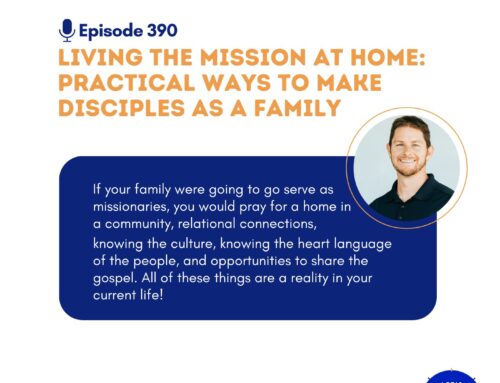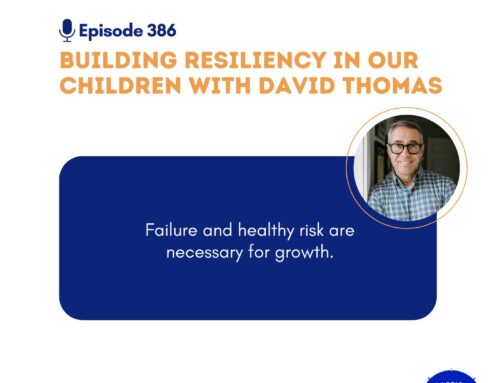Powered by RedCircle
In case you haven’t notices, your children typically have multiple character issues that need addressing. Also, in case you haven’t noticed, they usually don’t appreciate when you address those issues.
They especially don’t like when you bring up multiple issues all at once. In that way, they’re like the rest of us humans. But unlike the rest of humanity, children often have no sense of urgency in developing character habits, responsibility or personal industry. Inside the safety of the home, there’s generally a buffer zone that protects them from some of the natural consequences they will face in the grown-up world. This is a good thing, but can be frustrating as well.
I feel like I have simple desires for my children: I just want them to treat each other kindly, to speak to me and their mother respectfully, to give their best to their homework and chores, to pick up after themselves, and to preemptively notice when things need to be done and help out sometimes.
Sounds simple. But apparently, it’s insanely hard. And it takes thousands of repetitions and reminders. And I get so very tired and frustrated.
How do you train your kids to develop character, responsibility, and industry without living in constant tension or crushing their spirit?
When my wife and I were going through foster parenting classes, they introduced us to a term that has been very helpful for me.
Junk Behavior: Behaviors that are annoying, unpleasant, but not immediately harmful.
In training us to bring very broken children into our home, we were coached that these kids would bring a whole hosts of undesirable habits with them. As parents, our goal is to discern what’s most vitally important to our household, focus on these, and let some of the others slip by as “Junk behavior”. It doesn’t mean that you have to acknowledge those behaviors are acceptable. It means ignoring them until you deal with more pressing issues.
This concept has been extremely helpful, not just in fostering, but in parenting our biological children as well. A couple of the helpful results that came from adopting this strategy:
- It gave us the freedom to be inconsistent in our parenting.
- It calmed our frustrations that we might be raising social deviants.
The freedom of inconsistency: I love all of my children to the fullest of my capacity. But I don’t love them all the same. I love them uniquely, because they are unique. And while we try to maintain consistent character and standards in our home, rules are flexible based on a child’s ability and capacity. For example, I have a little one who struggles greatly with impulse control, among other things. We have worked on the habit of waiting until we pray before we all start eating, but it is a nightly occurrence for her to get up from the table, go to the restroom, literally do a few cartwheels, and come sit back down. She will get up from the table 4-6 times a meal in the evenings. I hate it. But I largely ignore it, because we are also working on eating with our utensils and not hands, taking part in dinner conversations without dominating or yelling, and we also want to find out about our other children’s day.
No one else is allowed to do cartwheels at dinner. But for our youngest, at this time, it’s junk behavior. There will come a day when we will focus on this. But it’s probably not going to be this evening.
A calm parent produces less social deviants: That’s at least what I’m telling myself. By choosing to ignore junk behavior, realizing that there’s plenty of time to “fix” some of these actions, I don’t build up steam so quickly. I pay more attention to heart issues. I’m happier and less disappointed in my children and my parenting. This makes me a better parent, I’m pretty sure. I treat my children better when I’m in a good mood, and generally they reflect that behavior and will treat others better. I don’t want to stay angry, frustrated, or nitpicky. Hopefully, by prioritizing my battles, my children will take to heart the battles that are most important to me. Besides, my goal isn’t to “battle” them anyway. It’s to teach them to have character, love God, and be a helpful human.
God puts up with SO MUCH junk behavior in our lives as He continues to sanctify us. Aren’t you thankful He doesn’t zap you every time you blow it?
So what behaviors are junk behaviors?
This very much depends on your child, your household, and your situation. I think all of the following COULD be considered a junk behavior, depending on the circumstance. I’ll leave it to you, your spouse, and the Lord to discern what’s best in your current family stage:
- messy rooms
- dress and clothing (sloppiness and styles)
- sighing
- back-talking
- procrastination
- slang words (not cursing)
- table manners
- interrupting
- moodiness
I could go on and on, but you get the idea. ALL of these habits need to be addressed. You’re just not going to be able to address them all at once. Go for heart issues first!






